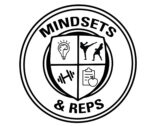
Soccer is one of the rare sports that is a true combination of aerobic endurance and anaerobic power. Over the course of two 45 minute halves, players are in perpetual motion while also sprinting and jumping to their maximum ability. This unique combination makes it one of the most challenging sports from a physical fitness perspective. At the 2014 World Cup in Brazil, there were designated water breaks due to the weather and intense cardiovascular nature of the sport. The same is likely to occur at the 2022 World Cup due to the warm climate in Qatar. We’ve even seen cooling breaks implemented during each half in recent matches since the sport has returned.
Due to the popularity and competitive nature of the sport, players will look for any advantage in their diet, training, and supplementation to get an edge. Supplements in particular are an easy to implement tool to improve one’s performance, but you have to choose wisely.
The following supplements address the three biggest needs for soccer athletes: top end speed for counter attacks and runs in the box, endurance to maintain a high pace for 90 minutes, and recovery from games and practices to ensure top performance each day.
1. Creatine
Just put creatine at the top of every list. Creatine has been researched at a level like no other supplement. There is no debate that it works.
Creatine has many benefits, but one thing people overlook is its role as an energy source. We use creatine for energy the same way we use carbohydrates and fats. Creatine is excellent at fueling high intensity, sprint-like activities. Saturating your muscles by supplementing with creatine every day is an excellent way to keep that fuel tank full.
In addition, creatine has been shown to increase power output, anaerobic running capacity, and muscle hydration. The latter is due to its ability to draw water into muscle cells.
The ironic thing is that for all of its benefits, creatine is remarkably inexpensive. A container will run anywhere from $15-20 and last a very long time. Some people like to load creatine, taking 20-25g each day for five days. While this will saturate your muscles more quickly, I am not a fan of this protocol as I feel it causes too much stomach distress. I would rather have people take a maintenance dose of 3-5g per day. There is no evidence that creatine has to be cycled in any way, you can take it year round.
Recommendation: The majority of research is done in creatine monohydrate. Almost every major supplement company has a creatine monohydrate commodity product for cheap.
2. Beta Alanine
Beta Alanine is a popular ingredient in pre-workout supplements. Ironically, it doesn’t really benefit most of the population who use it. Beta Alanine’s true benefit is increasing muscular endurance, which most common gym goers don’t care about. For athletes however, muscular endurance is a massive key to success. If you’ve tried a supplement containing beta alanine in the past, this is the ingredient responsible for the tingling sensation you may feel.
When you exercise intensely, the body produces acid which leads to fatigue. Beta Alanine helps to buffer this acid so you can exercise at a high level for longer. Beta Alanine is stored in muscle (in the form of carnosine) the same way creatine is so you don’t have to worry about dosing it at a specific time. It is basically released as needed during times of high lactic acid production during intense exercise.
Typical beta alanine supplementation is about 3g per day.
Recommendation: Beta Alanine is sold on its own, but is so prevalent in workout supplements that you can get more bang for your buck by picking a comprehensive product with multiple ingredients.
3. L-Carnitine
Carbohydrates are the best source of energy for sustained exercise and athletics. Carbohydrates are the only nutrient that can fuel both anaerobic (high intensity/short duration) and aerobic (low intensity/long duration) activity, no other substrate can do that. They are literally the perfect fuel source.
The problem: your body has a limited capacity to store carbohydrates. The average person can store about 400-600g of carbohydrates in the form of glycogen in their muscles and liver. It may sound like a lot, but your body will run through that rather quickly during a long athletic event.
As a result, the body will turn to fat for energy. Fat cannot keep up with the demands of high intensity exercise the way carbs can, so they are not as ideal a fuel source. What that means is: if you were sprinting down the pitch then your body would not be able to produce enough ATP (energy) from fats to keep up with your run. As a result, you would be forced to slow down somewhat. Regardless, there comes a point where we have to use fats whether we like it or not due to our inability to store carbs at a high level.
The reason fats are not an ideal fuel source is because it is a long, multi-step process to turn fatty acids into usable energy for exercise. However, that doesn’t mean we can’t do everything we can to make this process more efficient. Supplementing with L-Carnitine can help.
Carnitine is actually the transporter in the body which carries fat into the mitochondria of your cell. Basically, the mitochondria convert nutrients to energy. This is actually the rate-limiting or slowest step of the fat burning process, so carnitine supplementation is crucial in speeding it up.
Despite its direct effect on fat utilization for aerobic exercise, there are multiple studies showing improvements in anaerobic power output with carnitine supplementation as well. I go into greater depth on the effects of carnitine and athletics in this article.
Typical carnitine supplementation is 1-2g every day. There are multiple forms of carnitine, and one doesn’t necessarily seem better than another according to research. However, it is important to take carnitine with a meal since it is insulin-dependent, meaning it requires insulin to properly be absorbed into muscle. The one exception is Acetyl L-Carnitine, which does not require insulin for proper absorption.

4. Caffeine
We often don’t consider caffeine a supplement, or even a performance enhancer. It has become such a part of our daily lives that we look at it like any other food or drink. Similar to creatine, this rather inexpensive compound is one of the most well-researched and proven supplements out there.
Caffeine has been shown to increase both anaerobic and aerobic performance, delay fatigue, and improve reaction time. It is one of the best things a soccer player can take, barring any issues with tolerance.
Caffeine is a staple ingredient in many pre-workout drinks and of course coffee. You will become accustomed to caffeine over time, so some people choose to cycle on and off. Doses range anywhere from 100-400mg, again depending on one’s tolerance.
Recommendation: As alluded to previously, there are supplements which contain many or all of the ingredients discussed in this article. Outlift by Nutrex contains clinically dosed amounts of creatine, beta alanine, and caffeine in one serving. One scoop before practice or games is all you would need and it’s a supplement I’ve used many times in the past.
5. Multi-Vitamin
You can’t play if you’re sick. Hard training is taxing to the immune system, and proper nutrition is vital to keeping yourself healthy. But even the most well-rounded, whole foods based diet won’t have all the vitamins and minerals you need in adequate amounts. Remember, athletes have different nutritional needs than the general population.
Multi-Vitamins are often considered a supplement insurance policy, filling in all the micronutrient gaps that your diet may have.
Price isn’t always a good indicator of quality, but vitamins are one situation where I’ve found it to be relatively true. A $10 Centrum or One-A-Day is such low quality that it won’t do much for you (unless you have a serious deficiency). In addition, many people report stomach issues when taking those products.
At the same time, you don’t have to break the bank to get a good multi. My go-to for years is a product called Orange Triad. It has quality sources of all the vitamins and minerals. But the reason I like it for you as well is the additional joint support. So it’s basically a two in one product for a solid price. They also offer a powder form vitamin which contains a greens formula. As weird as it may sound I actually just scoop the powder in my mouth and swish it with water right after.
Vitamins A, D, E, and K are fat-soluble vitamins, which mean that they absorb better with a meal. No matter what multi-vitamin you choose, make sure you always take it with food.
Honorable Mentions
Protein is crucial for recovery, and it can be hard to get adequate protein through diet alone. Whey protein is a great, convenient way to add protein to your diet, provided you digest it properly.
Coconut Water is a great source of the electrolyte potassium, which many individuals are deficient in. It is also a quick source of carbohydrates, which we discussed as being the ideal fuel source for all athletic events. Make sure you purchase pure coconut water and not coconut water from concentrate.
Citrulline is an ingredient found in many pre-workout formulas (including the recommendation listed) for its role in increasing blood flow and improving endurance. It can also recycle ammonia, which is a byproduct of exercise that can lead to fatigue
Final Notes: Before using any dietary supplement please go to your training staff, coach, and/or governing body to make sure it upholds all standards implemented by any testing policy you may go through.
